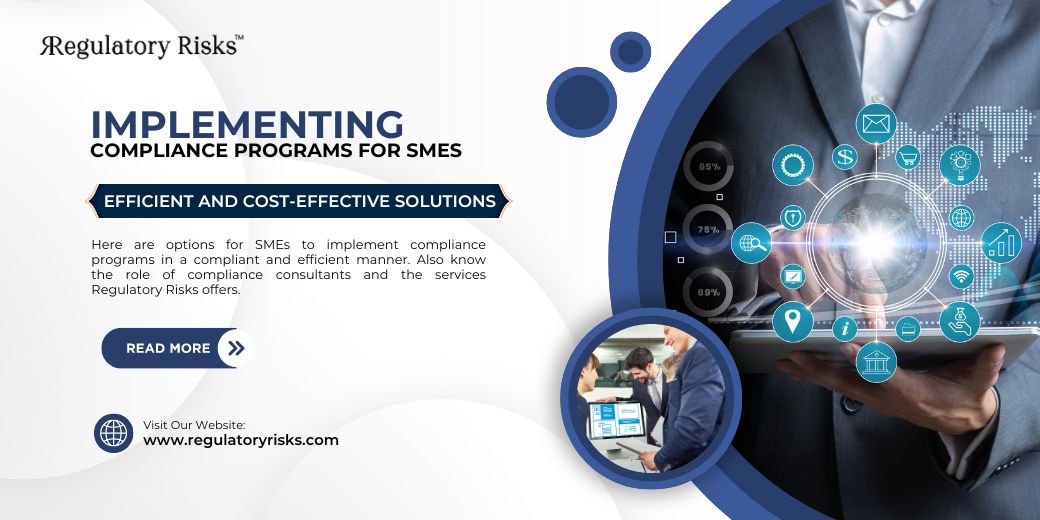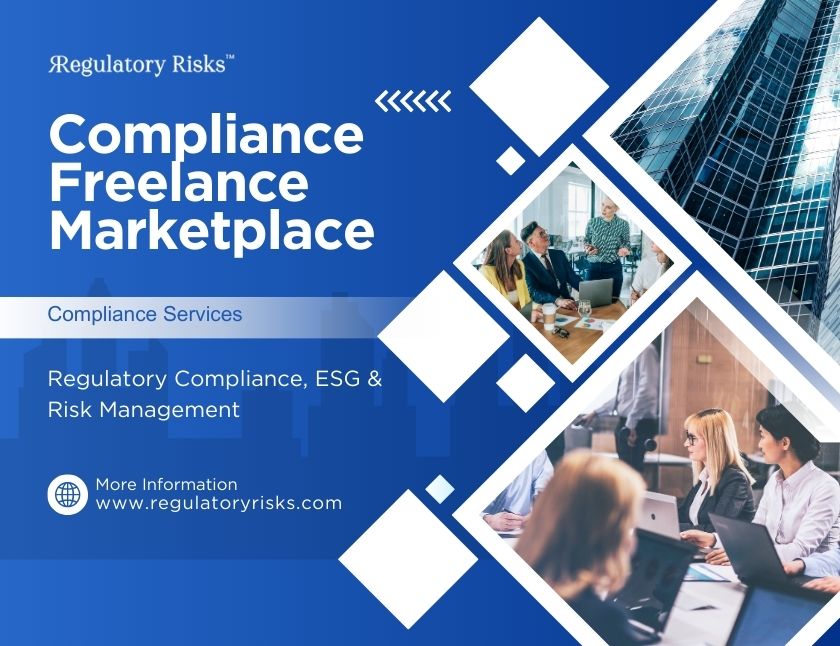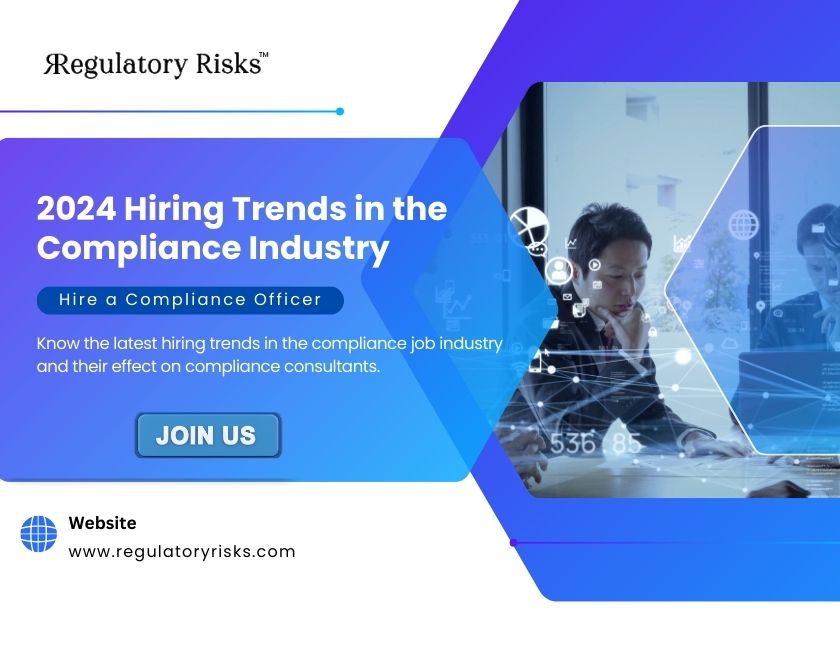Small to medium enterprise (SME) companies, including startups, often face unique challenges when it comes to implementing compliance programs. While regulatory requirements are no less stringent for SMEs, limited resources and expertise can make compliance seem daunting. However, there are efficient and cost-effective options available to help SMEs establish robust compliance programs. This article explores various options for SMEs to implement compliance programs in a compliant and efficient manner, with a focus on the role of compliance consultants and the services offered by Regulatory Risks, a specialist risk and compliance freelance marketplace.
Understanding the Need for Compliance Programs
Regulatory Landscape: SMEs are subject to various regulatory requirements, depending on their industry and jurisdiction. Compliance with these regulations is essential to avoid legal penalties, reputational damage, and financial losses.
Risk Management: Implementing a compliance program helps SMEs identify and mitigate risks related to legal and regulatory non-compliance, financial crime, data breaches, and more.
Options for Implementing Compliance Programs
Internal Compliance Officer: SMEs can hire a dedicated compliance officer or designate an existing employee to oversee compliance efforts. This option provides direct oversight but may be cost-prohibitive for smaller companies.
Outsourced Compliance Services: Outsourcing compliance services to specialized firms or consultants allows SMEs to access expertise on an as-needed basis. This option is cost-effective and scalable, making it suitable for companies with limited resources.
Compliance Software Solutions: Utilizing compliance software platforms can streamline compliance processes, automate routine tasks, and ensure consistency in compliance efforts. While initial investment may be required, these solutions can offer long-term efficiency benefits.
Freelance Compliance Consultants: Engaging freelance compliance consultants through platforms like RegulatoryRisks.com provides SMEs with access to specialized expertise without the commitment of hiring full-time employees. This option offers flexibility and cost-effectiveness, making it ideal for SMEs.
Efficient and Cost-Effective Compliance Program Implementation
Compliance Risk Assessment: Conduct a thorough assessment of regulatory requirements and compliance risks specific to the industry and business operations. Identify key areas of compliance focus to prioritize resource allocation.
Tailored Compliance Policies and Procedures: Develop customized compliance policies and procedures that align with the company's risk profile, business objectives, and regulatory obligations. Ensure clear communication and employee training on these policies.
Regular Compliance Monitoring and Review: Implement ongoing monitoring and review processes to track compliance performance, identify deficiencies, and address emerging risks. Regular audits and assessments help maintain the effectiveness of the compliance program.
Utilize Technology and Automation: Leverage compliance management software and automation tools to streamline compliance processes, enhance efficiency, and reduce manual workload. These technologies can help SMEs optimize resource utilization and improve compliance outcomes.
The Role of Regulatory Risks
Access to Specialized Compliance Consultants: RegulatoryRisks.com connects SMEs with a network of experienced compliance consultants who offer tailored solutions to meet their compliance needs. These consultants bring expertise in various industries and regulatory domains.
Flexible Engagement Models: SMEs can engage compliance consultants on a project basis or for ongoing support, depending on their specific requirements and budget constraints. This flexibility allows SMEs to scale their compliance efforts according to their evolving needs.
Cost-Effective Solutions: Engaging freelance compliance consultants through Regulatory Risks offers cost-effective compliance solutions compared to hiring full-time employees or engaging traditional consulting firms. SMEs can access expertise on demand without incurring significant overhead costs.
Conclusion
Implementing a compliance program is essential for SMEs to navigate regulatory requirements, manage risks, and safeguard their business interests. By leveraging efficient and cost-effective options such as outsourcing compliance services and engaging freelance compliance consultants through platforms like Regulatory Risks SMEs can establish robust compliance programs tailored to their specific needs. With the right approach and support, SMEs can achieve compliance efficiently while focusing on their core business objectives and driving growth in a competitive marketplace.
Regulatory Risks is a freelance marketplace that connects your business with chief compliance officers, compliance consultants and compliance services in the market. Whether you need a chief compliance officer for a short-term project or longer-term compliance jobs, Regulatory Risks is your firm’s on-demand flexible specialist resourcing solution.
The Regulatory Risks platform is easy to use, secure and transparent. You can browse through profiles of vetted and verified compliance consultants and schedule video interviews. Hire a compliance officer today.




